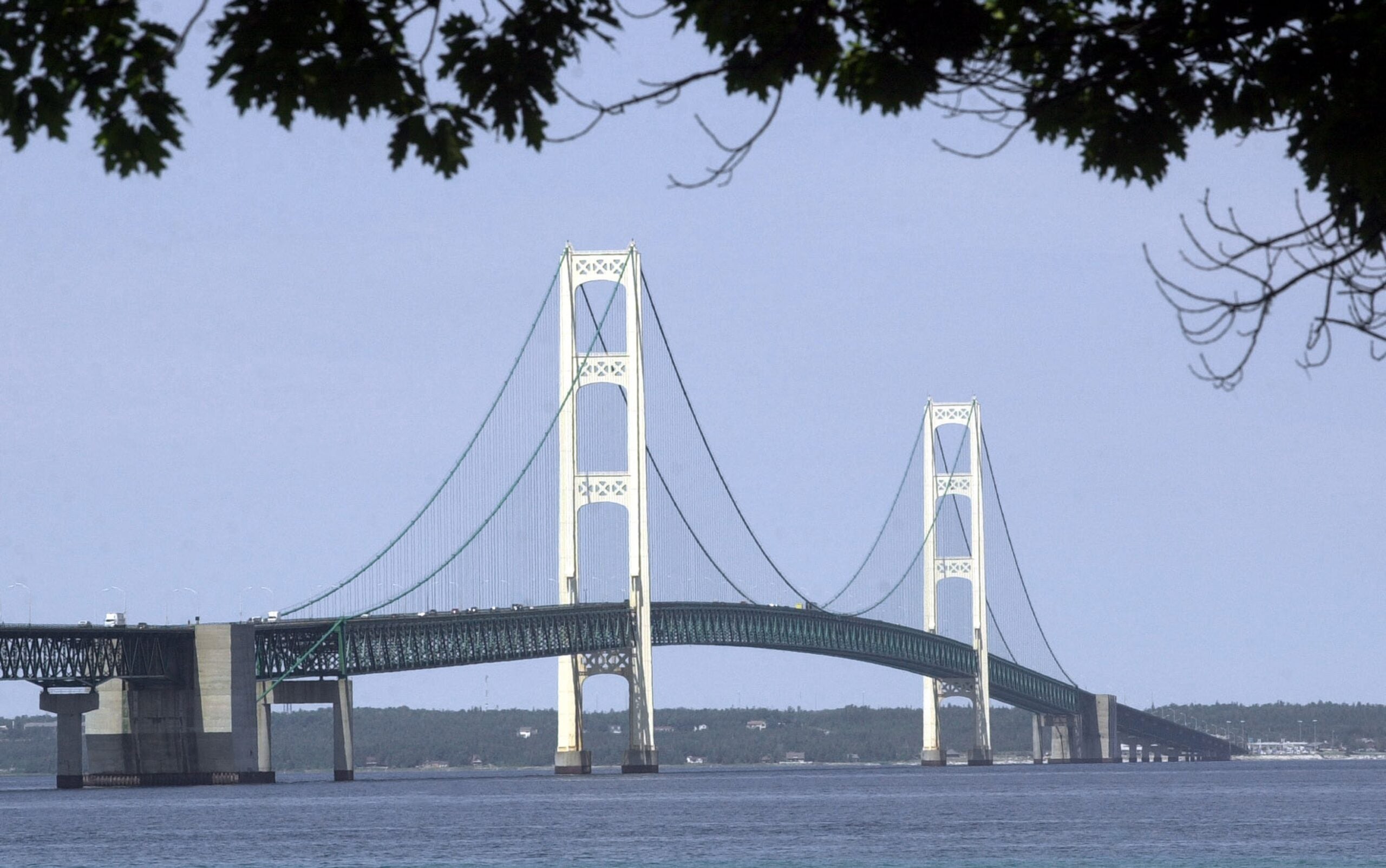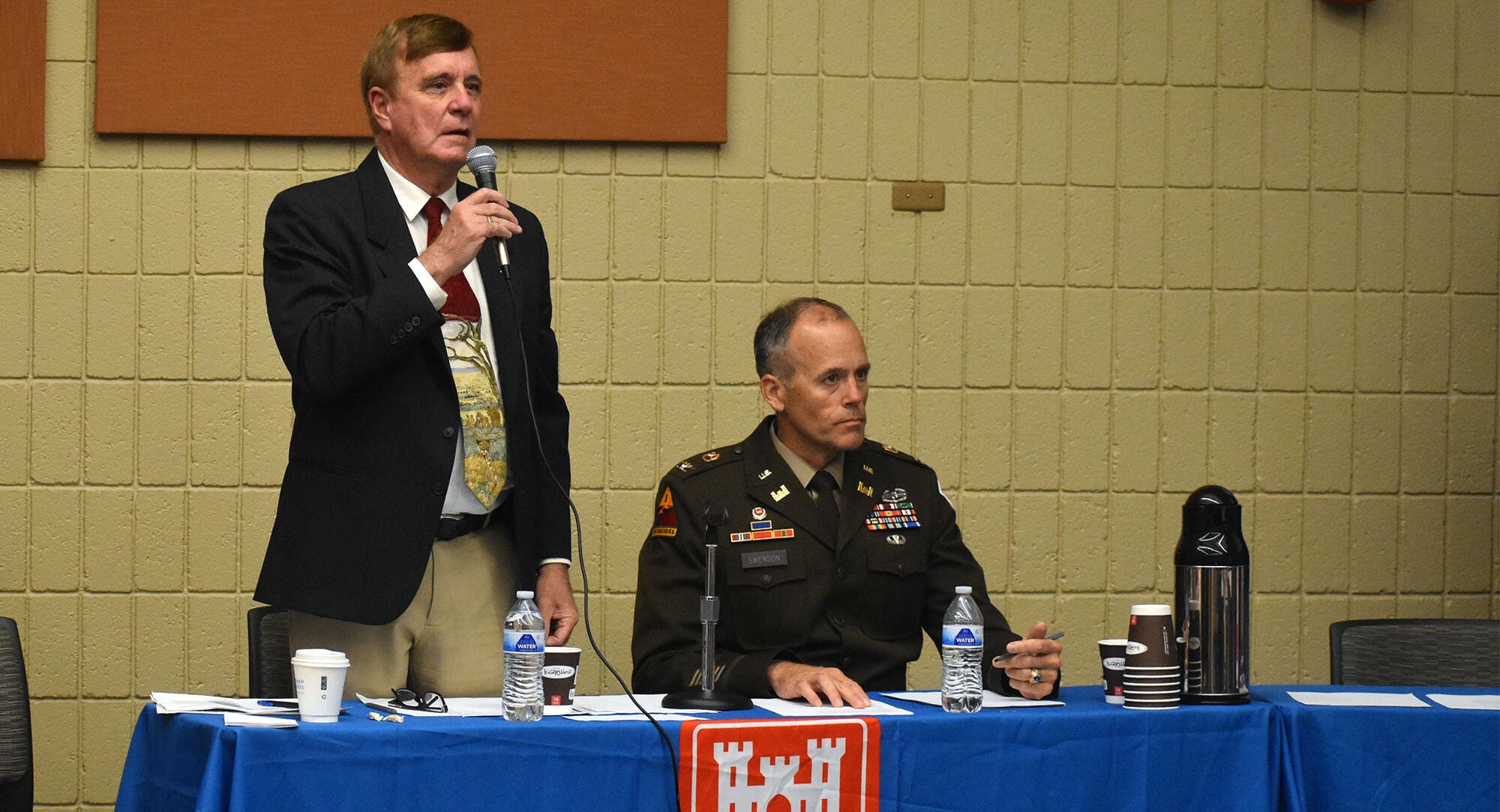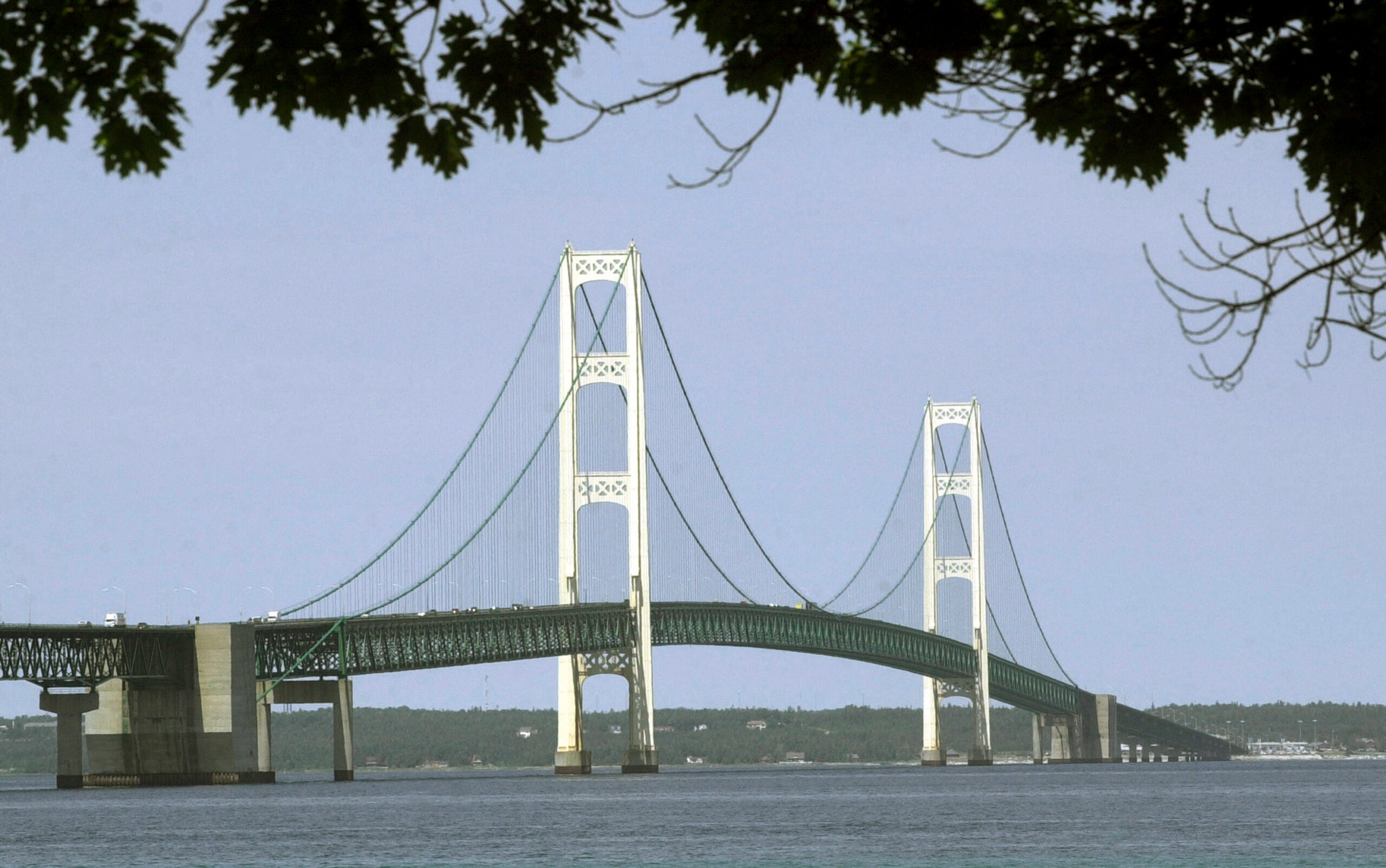The U.S. Army Corps of Engineers said Friday that it will issue a decision this fall on a Canadian energy firm’s plan to build a $750 million tunnel for its Line 5 pipeline on the bottom of the Great Lakes.
The project would replace a 4-mile stretch of Enbridge’s oil and gas pipeline in the Straits of Mackinac that connects Lakes Michigan and Huron. Line 5 carries up to 23 million gallons daily from Superior across northern Wisconsin and Michigan to Sarnia, Ontario.
The federal agency previously said it would announce a final decision in 2026. But last month, the Army Corps said it would fast-track review of a federal permit for the project under President Donald Trump’s declaration of a national energy emergency.
Under an updated timeline released Friday, the Army Corps plans to release a draft environmental impact statement by May 30. The public will be able to provide input on the agency’s findings through the end of June.
Environmental groups and Great Lakes tribes have condemned the agency’s move to fast-track review, saying the project poses too great a risk of an oil spill. Enbridge has said the project will make a safe pipeline safer and allow it to continue serving as an energy link for refineries and households in the Midwest.
Enbridge reached a deal to build the Line 5 tunnel during former Michigan Republican Gov. Rick Snyder’s administration in 2018. A year later, Michigan Attorney General Dana Nessel sued to shut down Line 5 on behalf of Democratic Gov. Gretchen Whitmer.
A Michigan appeals court upheld state permits for the tunnel in February after tribes and environmental groups challenged their approval by the Michigan Public Service Commission. Enbridge has re-applied for multiple state environmental permits granted for the project that were set to expire in 2026.
A decision has yet to be issued in Michigan’s case against Enbridge after a Michigan judge heard oral arguments earlier this year. Michigan officials allege a 1953 easement for the pipeline’s operation violated the state’s public trust doctrine and should be revoked. Attorneys for Enbridge argue the company’s easement is valid.
In Wisconsin, the company is also facing legal challenges from the Bad River Band of Lake Superior Chippewa and environmental groups over its plan to reroute Line 5 about 41 miles around the tribe’s reservation. In 2020, Enbridge proposed relocating the pipeline after the tribe sued in 2019 to shut down Line 5 on tribal lands where pipeline easements have expired.
An Army Corps official previously told WPR that the Wisconsin relocation project is eligible for emergency permitting procedures, but no expedited review has been implemented. A virtual public hearing will be held May 13-14 on whether the Line 5 reroute violates the Bad River tribe’s water quality standards.
News with a little more humanity
WPR’s “Wisconsin Today” newsletter keeps you connected to the state you love without feeling overwhelmed. No paywall. No agenda. No corporate filter.
An administrative law judge will also hold a contested case hearing on Aug. 12 in Ashland and again Sept. 3 through Oct. 3 in Madison after the tribe and groups challenged permits issued for the project by the Wisconsin Department of Natural Resources.
Wisconsin Public Radio, © Copyright 2026, Board of Regents of the University of Wisconsin System and Wisconsin Educational Communications Board.





